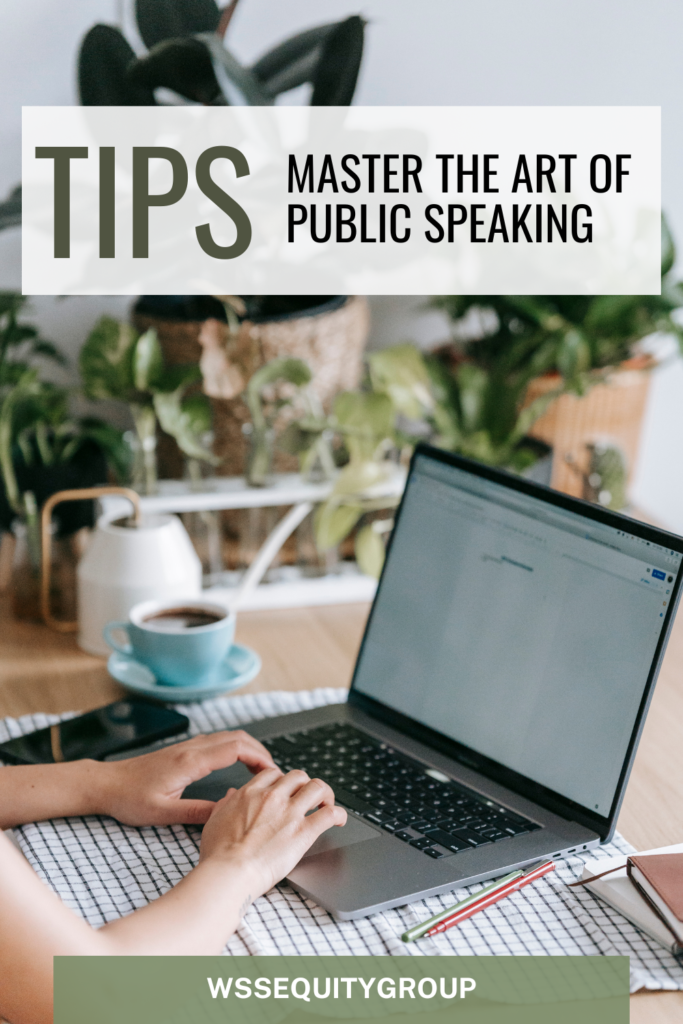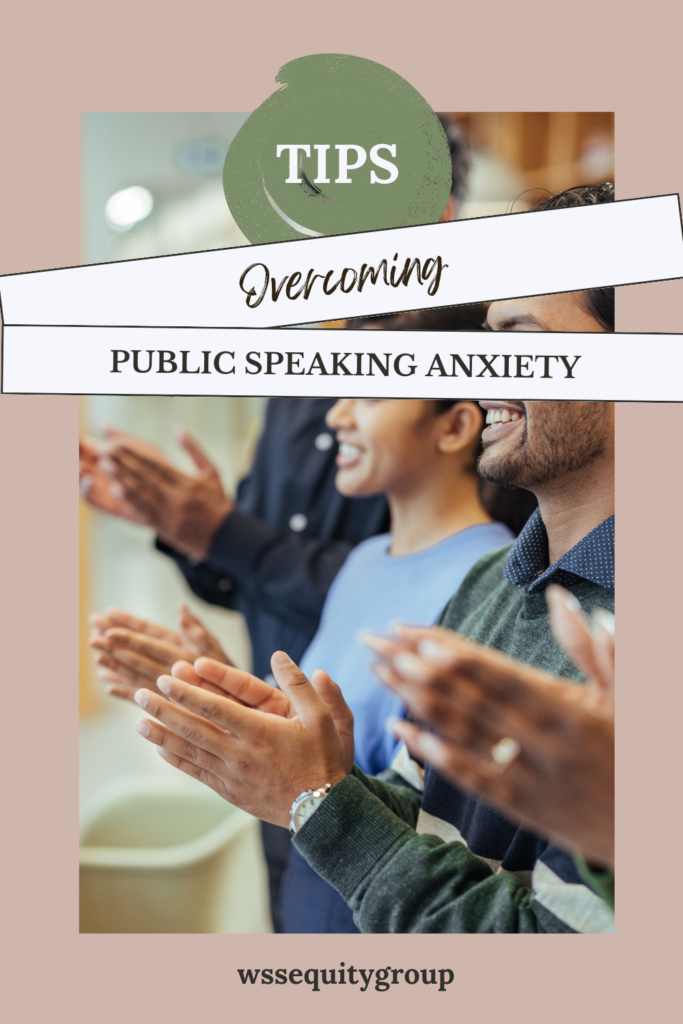
Public speaking is a skill that takes some time to learn. When it is done well, you can use it to convince someone to act a certain way, evoke certain emotions, and more. For many people, public speaking can be hard to learn and hard to get right. This may cause them a good deal of anxiety along the way. The good news is that anyone is able to learn some of the skills that come with public speaking. Whether you have a background in public speaking or not, these 21 best tips for effective public speaking will give you a head start so you can give a great speech too.
1. Know Your Audience
Before you give any speech and start to work on the message, you need to consider who will listen to that message. While most of the research should be done on the topic you would like to present on, you also need to know about the audience. This can help you decide the level of information, the words, and how you would like to organize the information. This can do wonders when it is time to start preparing the speech.
2. Organize the Information
You will likely have a lot of information to share with the audience. Organizing it can sometimes be the most difficult part. Think about the topics you have and how you would like to present them based on the purpose of the speech. Write down some of the main points and see whether they flow together, moving things around as you see fit.
3. Watch for Feedback
While you are giving the speech, gauge some of the feedback that you get and see if you should make some changes. See how others respond to the message and try to stay as flexible as possible as you do the delivery. If the speech is canned or phoned in, the audience will notice and they will stop listening or get confused. Having the flexibility to work with the speech and make it move around can help.
4. Work with the Nerves
Everyone gets nervous when it comes to giving a speech. The way that you handle the nerves will determine how well you will do with the speech. Whether you practice the speech a million times or you use meditation or visualization, it is important to learn how to keep the nerves calm and collected during the speech.

5. Smile (21 Best Tips for Effective Public Speaking)
Smiling is a great way to put everyone at ease and it is something that you should consider doing as well. First, when you smile it is easier to kick out some of the nerves and can make you appear more confident as you go. Plus, it is a great way to connect with your audience, ensuring that you are able to have a great speech that they are excited to listen to.
6. Use Visualization
Visualize how the speech is going to go and what you would like to see happen while you are giving the speech. This will help you to imagine what will happen during the speech and is a great way to prepare for all of the steps that will occur when you give the speech as well. Try to imagine all of the good things that can happen during the speech as well as all of the bad things so that you are able to be prepared for everything.
7. Use Humor
Everyone in the audience will respond well to humor, as long as it is placed well in the speech and makes sense for what you want to say. Try to avoid inappropriate humor that does not do well in most groups. A funny anecdote is a great way to open up the speech and help everyone to have a good laugh or chuckle before you get into the meat and potatoes of the speech.
8. Tell a Story
Another way that you can start your speech is with a story. Make sure that the story has something to do with your topic and that it is interesting enough that the audience will want to listen to it. This is a great way to start the speech if you struggle with getting humor to go off well.
9. Use Language That is Effective
The right language will make all of the difference with your speech. You do not need to use language that is full of fillers and a lot of other nonsense just to try and impress others. In fact, this may just distract from the message that you are trying to share instead. Focus on choosing the most effective language, not the language that is the most flowery or impressive and see what a difference it makes.
10. Avoid Reading the Script
You should never write down every word that you want to say during your speech and then read off the document as you give that speech. This would be a nice way to make sure that you do not forget some of the things you want to say, but it does not look all that professional at all. At the most, a few notecards with a few key phrases to help you remember what you want to say to the audience is more than enough. Anything more than that will not look professional.
This is where all of the practicing needs to come into play. The more you practice, the less likely it is that you will forget some of the information that you want to have for the speech. You can still use a few notecards to help, but you will not need them because you have enough confidence in the speech without them.
11. Use Your Hands
Using your hands can be a tricky thing to do while giving the speech. There is a point where your hands can help to show off the message that you want to give to others. When you use the right hand movements, you will be able to emphasize a point, talk about a certain topic, and help the audience to remember something that you have said to them.
It is also possible to use your hands in the wrong way as well. When you flail the hands around and have them everywhere like you are going to hit someone along the way, then you could end up with some trouble. This is too distracting for the message that you want to share, and that is never a good. Learn how to get your hands under control and they can turn into an asset, rather than a distraction, during the speech.
12. Avoid Slouching (21 Best Tips for Effective Public Speaking)
When we are nervous about something, we tend to shrink in on ourselves, trying to become smaller and take up less space. This is going to look bad when we are trying to do our speech and can affect how much others are going to listen to us. It also does not portray some of the confidence that we need while doing the speech. While giving the speech, stand up straight and tall, with your head up and smile at the people around you. this will help you to be more successful in the speech.
13. Dress Nicely (21 Best Tips for Effective Public Speaking)
Since you will be right in front of others during the speech, you need to consider the outfit that you wear. The exact outfit will depend on who you will be in front of during the speech. Something like business casual or dressier is often the best. Never go to the speech in an outfit that is worn out and looks horrible or you will ruin your reputation and kill the credibility that you need.
14. Avoid Filler Words
Filler words take up a lot of space and do not get a lot of things done. These are the words “like” “Um” “well” and more. It is best to avoid these since they do not add anything to the conversation and can slow things down. If they are used too often, they will even distract from the main message that you want to use. Try to add in a pause instead for better results.
Related: How to Write a Captivating ‘About Me‘ Page

15. Practice the Speech Often
The more times you can practice your speech, the better it will go. If you just write down the information and then do nothing else with it, then the results will not be good. In fact, having the speech practiced with a recorder or with someone you trust to critique you at least five times will help you feel better and can make life easier when it is time to give the speech.
16. Use the Pause
We have become too scared of the pause. We scramble through all of the words that we can without a stop because we think that is the best way to give a speech. However, this is not a good idea. It is going to make the message get lost and will speed the speech up too much. Learn the right times to make a pause, such as at the end of a sentence or the end of a paragraph, to help improve the flow of the speech and get the results that you want.
17. Speak Slowly
Unless you are speaking online where you should be a little faster, you will want to speak at a slower rate than you do for a normal conversation. This does not mean that the words have to drag on. But by putting a little bit of stop into the flow of the words, you will be able to help the audience hear you and it will ensure that they will get the message, without everything being garbled together.
18. Project Your Voice
Depending on the size of the room, you may need to talk to a lot of people. You do not want it so that just the person who is in the front of the room is the only one able to hear you. While projecting does not mean that you want to scream, especially when you are in a smaller room, it does mean that you should work to make your voice easier to hear no matter where the other people are sitting.
19. Grab the Attention at the Beginning
A good beginning is going to make all of the difference when it comes to the attention the audience will give to you. Your goal is to catch the attention of the audience within the first 30 seconds, or they will get bored and not want to listen to the rest. Use something like an interesting anecdote, a startling statistic, or another option that is going to garner the attention that you want as you get the speech rolling.
20. Have a Dynamic End
The ending is just as important as the beginning. You need to make sure that the audience is leaving with the idea that they learned something and that you were the one who was able to provide that to them. This can be hard. Going out on a high note is the trick, but it takes some time to learn. Spend some time learning about different dynamic endings that include a summary and some kind of strong statement that the audience will remember.
21. Giving the Best Speech Possible
While it is normal to feel nervous and anxious when you do a speech, there are plenty of actions that you can do to help give one of the best speeches of your life. By following the steps above, you will be able to kick the nerves out and give a speech you will be proud of.
Final Words
For many people, public speaking can be hard to learn and hard to get right. This may cause them a good deal of anxiety along the way. The good news is that anyone is able to learn some of the skills that come with public speaking. Whether you have a background in public speaking or not, these 21 best tips for effective public speaking will give you a head start so you can give a great speech too.
P.S. If you would like to unleash your full potential for public speaking, then grab access of our eBook, “Speak with Confidence” that is loaded with insights, tips and tricks to transform you into an impactful public speaker. Learn more here.
Share with us in the comments below – what other tips do you use to master public speaking?
Cheers!







